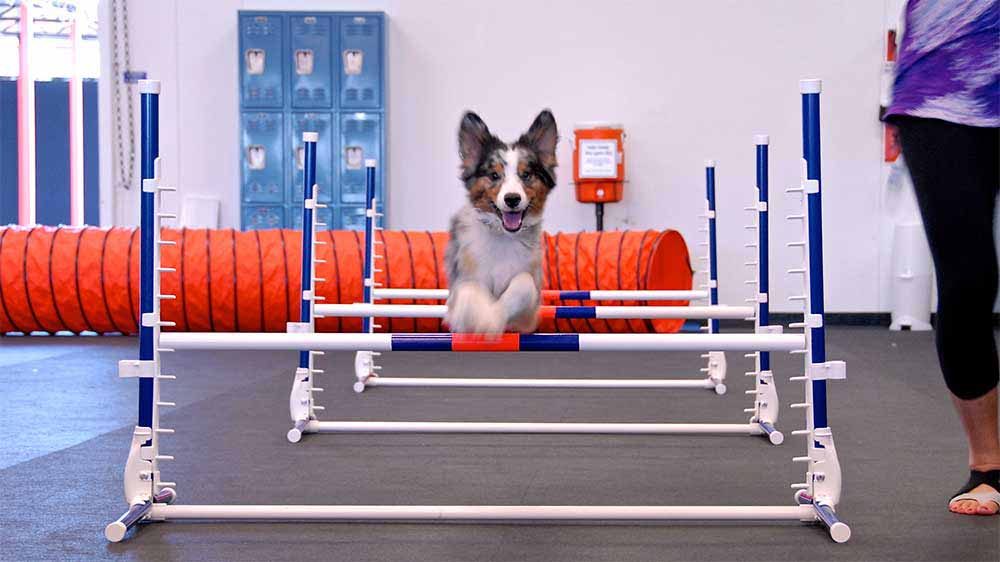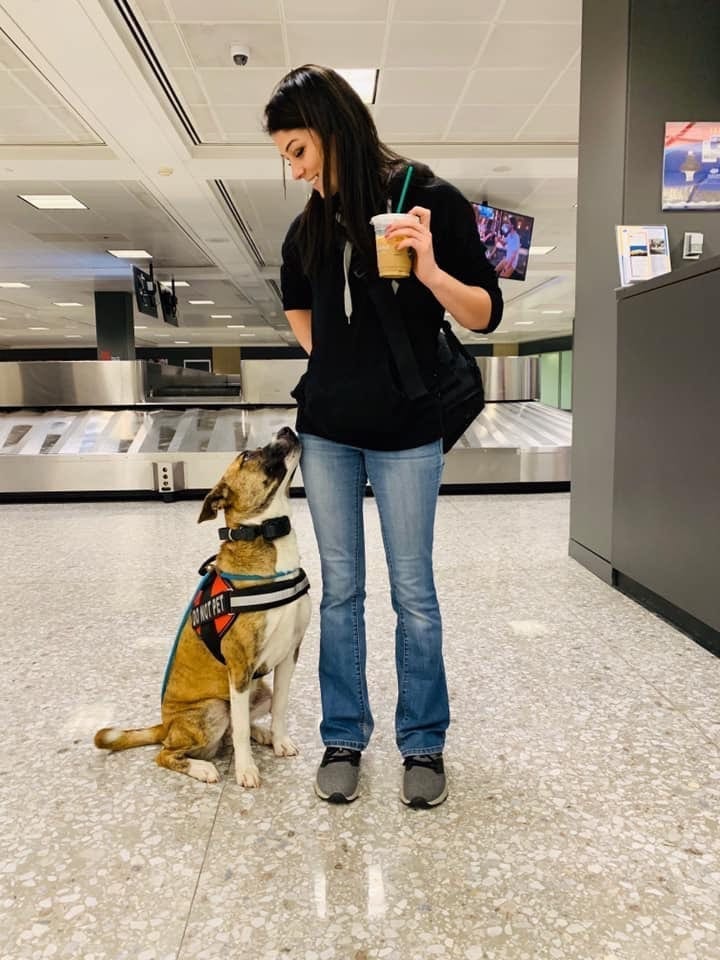Explore the Various Kinds Of Dog Training Available for Your Furry Pal
Understanding the different types of pet dog training is crucial for enhancing your canine companion's actions and cultivating a more powerful bond. From standard obedience to advanced techniques such as agility and aroma work, each training approach offers one-of-a-kind benefits tailored to both the dog's and proprietor's demands.
Fundamental Obedience Training
Basic obedience training lays the foundation for a mannerly canine, establishing the phase for an unified relationship between family pet and proprietor. This important training concentrates on training pet dogs basic commands such as rest, stay, come, down, and heel. These commands not just boost interaction however also promote security in numerous settings.
The training procedure commonly starts with positive reinforcement techniques, where incentives such as deals with or appreciation are provided when the pet dog effectively adheres to a command. This approach urges a favorable understanding ambience, inevitably fostering depend on between the dog and the owner. Uniformity is vital; regular practice makes sure that the pet maintains commands gradually.
Additionally, basic obedience training helps to resolve typical behavior issues, such as jumping, barking, or drawing on the chain. By developing clear borders and assumptions, proprietors can lower undesirable habits and enhance their pet's socializing abilities.

Advanced Training Methods
Advanced training methods build on the fundamental skills established in fundamental obedience training, offering a pathway to enhance a pet dog's abilities and responsiveness. These strategies usually entail specialized abilities and commands, allowing canines to do jobs that call for greater levels of focus and intelligence.
One popular method is dexterity training, where canines navigate challenge training courses, enhancing their physical sychronisation and psychological sharpness. This not only supplies exercise but likewise reinforces the bond in between pet and trainer with synergy and communication.
An additional sophisticated strategy is scent work, which take advantage of a pet dog's all-natural olfactory capacities. This training encourages dogs to identify and situate particular fragrances, enhancing their focus and analytical abilities. Such activities can be particularly useful for breeds inclined to tracking.
Service pet training is an additional essential area, where pet dogs discover to aid individuals with handicaps. This training needs a high level of obedience and specialized skills tailored to the details demands of their trainers.
Therapy Techniques
Reliable pet training prolongs past showing commands and skills; it likewise incorporates therapy approaches that deal with undesirable actions. These methods are essential for fixing problems such as aggression, extreme barking, and splitting up stress and anxiety, ensuring an unified relationship between pet dogs and their owners.
One commonly identified approach is positive reinforcement, which includes gratifying desired behaviors to urge their reoccurrence. This technique works in enhancing great behaviors while lessening fear or anxiety in the dog. On the other hand, aversive strategies, such as punishment or unfavorable support, are normally dissuaded by specialists due to their possible to produce worry and anxiety, resulting in further behavioral troubles.
Another essential technique is desensitization, which progressively exposes dogs to the stimulations that prompt unwanted habits in a regulated way. This process aids pet dogs learn to continue to be calm and made up in circumstances that would typically trigger anxiety or aggressiveness.
Counter-conditioning is typically made use of together with desensitization, where the pet learns to link favorable experiences with previously adverse stimulations. Both techniques call for perseverance and uniformity, making them reliable devices for achieving durable behavior change. By employing these habits modification approaches, pet proprietors can promote a well-adjusted and happy canine friend.
Specialized Training Programs
In the world of canine training, specialized training programs accommodate details needs and goals, providing customized techniques that boost a pet dog's capabilities and address unique obstacles. These programs are created for different purposes, consisting of service pet training, treatment pet dog prep work, and also competitive sporting activities training.
Service pet training concentrates on furnishing dogs with the abilities necessary to assist people with handicaps, such as directing visually impaired proprietors or informing to medical Get More Information emergency situations. This training is extensive and typically requires a combination of obedience, socializing, and particular task-oriented abilities.
Therapy pet dog programs intend to prepare pet dogs for emotional support duties in health centers, schools, and assisted living home. These pets need to exhibit peace, sociability, and a gentle temperament, guaranteeing they can provide convenience to those in distress.
Additionally, affordable sports training, such as dexterity or obedience tests, highlights physical conditioning, precision, and teamwork in between the dog and trainer. These programs require a high degree of dedication and method, cultivating a strong bond while sharpening the canine's athletic capacities.
Enjoyable and Interactive Training Activities
Just how can canine training be both effective and satisfying? The solution lies in incorporating fun and interactive training activities that promote your dog's mind while strengthening necessary abilities. Involving your dog with play not just reinforces the bond between you and your fuzzy friend but likewise enhances their knowing experience.
One Get More Information effective way to achieve this is with dexterity training, where pet dogs browse barrier training courses that challenge their physical and mental abilities. This activity motivates problem-solving and improves sychronisation, making it an outstanding choice for active breeds. Another option is making use of problem playthings that give deals with, which can keep your pet dog psychologically motivated and engaged to find out.
In addition, incorporating games like fetch or hide-and-seek can make training sessions more vibrant. These tasks urge the pet to reply to commands in a fun context, advertising obedience while enabling social communication.

Final Thought
To conclude, different kinds of canine training are important for boosting canine behavior and promoting a strong human-animal bond. Basic obedience works as the structure, while advanced methods, habits alteration, and customized programs address particular requirements. Involving tasks better enrich the training experience, making sure that it continues to be pleasurable and valuable for both dogs and their handlers. Discovering these diverse training choices equips canine proprietors with the devices required to cultivate well-shaped, pleased, and loyal buddies.
Understanding the various kinds of pet dog training is crucial for boosting your canine buddy's behavior and cultivating a more powerful bond. From fundamental obedience to innovative strategies such as dexterity and fragrance job, each training technique uses one-of-a-kind advantages tailored to both the pet dog's and proprietor's demands.Basic obedience training lays the structure for a mannerly pet, setting the phase for an unified partnership between animal and owner.The training process normally starts with positive support methods, straight from the source where rewards such as treats or praise are offered when the pet effectively follows a command.In verdict, different kinds of canine training are vital for enhancing canine actions and fostering a solid human-animal bond.